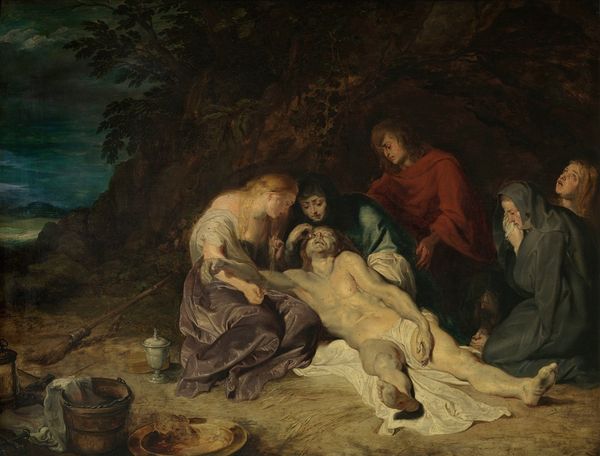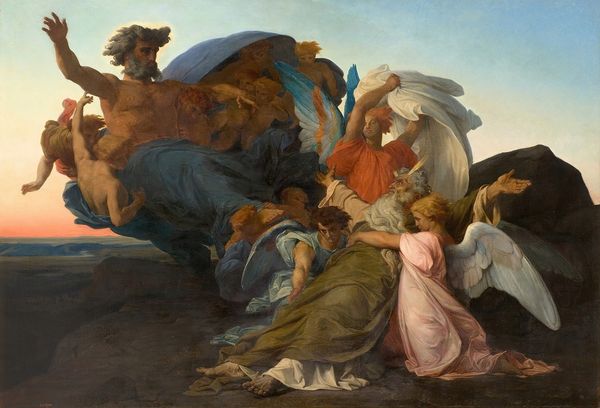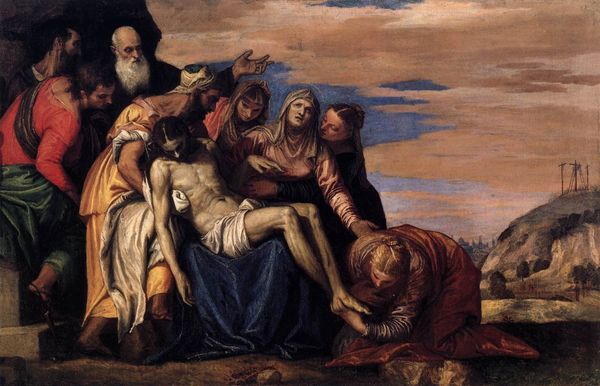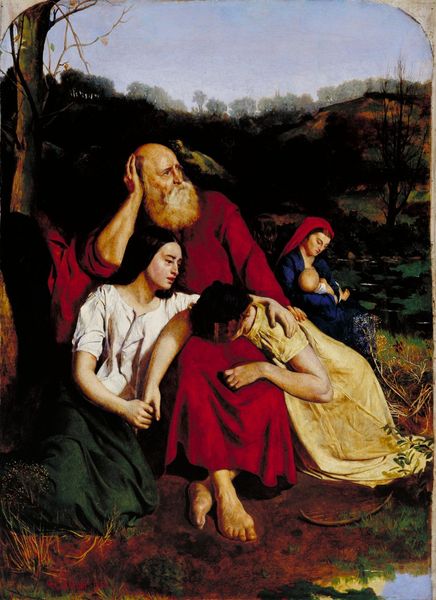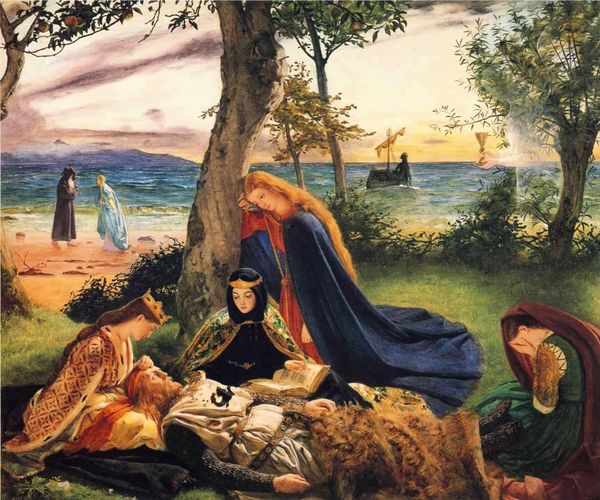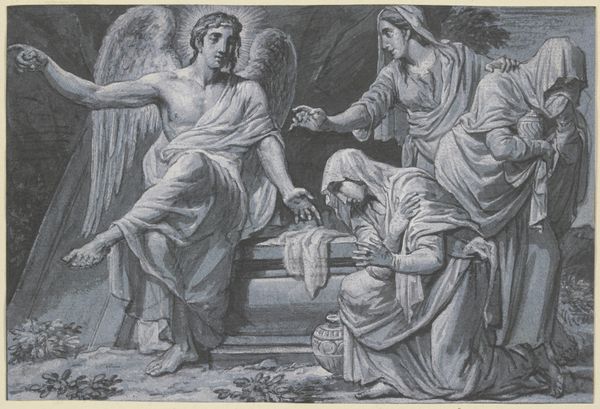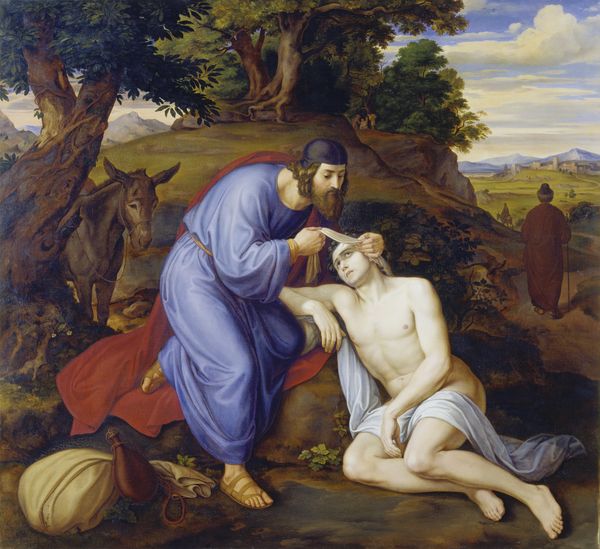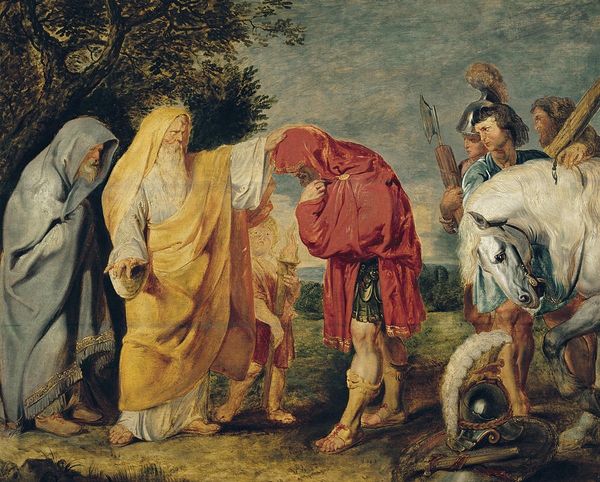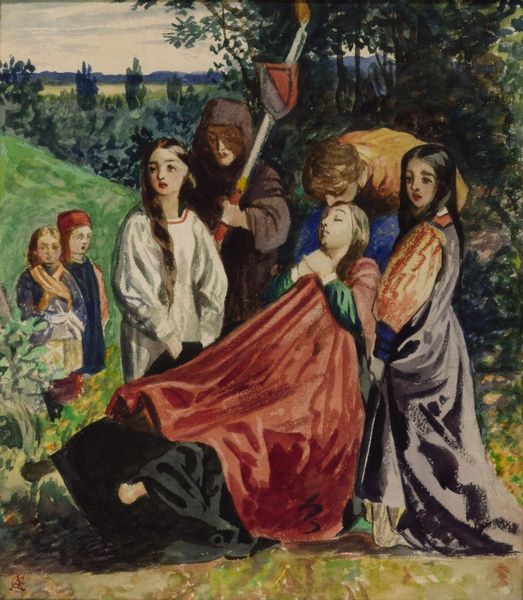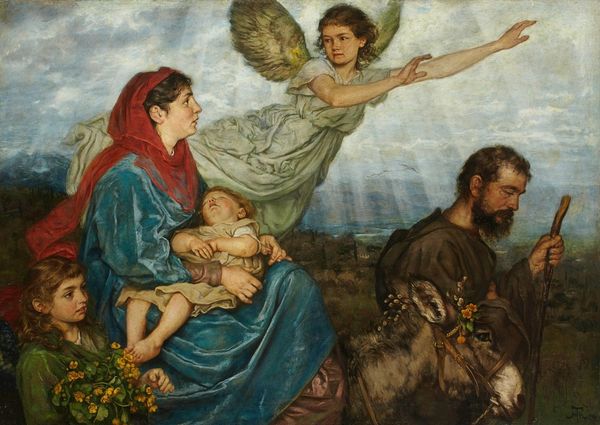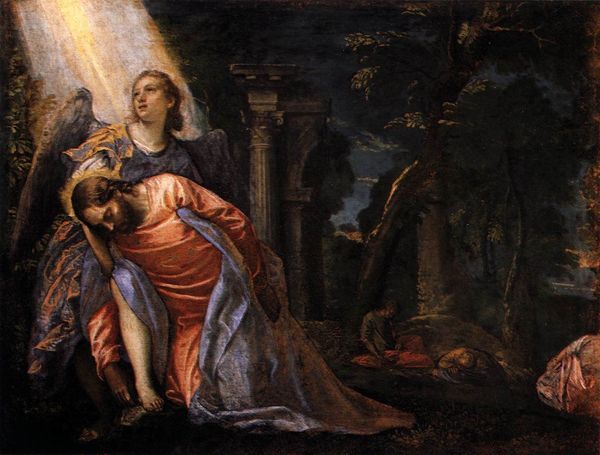
painting, oil-paint
#
allegory
#
narrative-art
#
painting
#
oil-paint
#
landscape
#
figuration
#
oil painting
#
romanticism
#
mythology
#
history-painting
#
watercolor
Copyright: Public domain
Editor: Here we have Joseph Binder's oil painting from 1848, "Die Speisung Jakobs in Der Wüste," or "The Feeding of Jacob in the Desert." The peaceful repose of Jacob really stands out. What do you see in this piece, from your perspective? Curator: This image immediately calls to mind themes of divine intervention and sustenance in times of profound need. Jacob's dream and the appearance of the angel bearing nourishment – consider the visual weight given to this interaction. Angels, across cultures, serve as potent symbols. Here, the artist connects to the deeply-rooted symbolic power, evoking emotional and spiritual reassurance. What feelings arise in you when viewing this? Editor: There is definitely a sense of comfort, a very still feeling that everything will be okay, perhaps. But what strikes me is how this image reflects the visual language of the time; would you agree it's evocative of the Romanticism movement? Curator: Precisely. Romanticism reveled in the power of nature, the individual’s spiritual experience, and an idealization of the past, including biblical narratives. Binder uses landscape, colour, and the figure of the angel to convey those emotions. Notice the serene landscape in the background and the ethereal treatment of the angel. Also consider the significance of sleep, dreams, and awakening prevalent in visual symbols from Romanticism, often signifying psychological exploration and revelations. Editor: I didn't catch all that at first! It is much deeper than just an image. Thank you! Curator: Indeed. Symbols carry a weight of cultural memory. Seeing this play out can be profound.
Comments
No comments
Be the first to comment and join the conversation on the ultimate creative platform.
